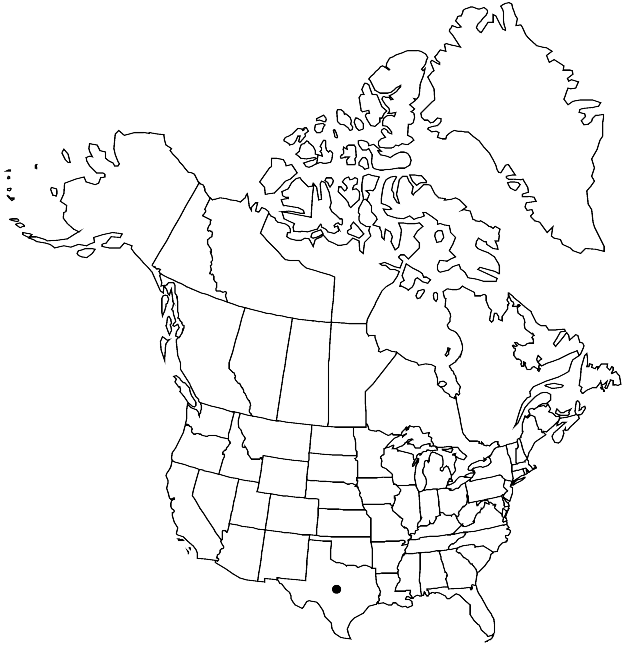Difference between revisions of "Streptanthus petiolaris"
Mem. Amer. Acad. Arts, n. s. 4: 7. 1849.
FNA>Volume Importer |
FNA>Volume Importer |
||
| Line 11: | Line 11: | ||
|name=Arabis petiolaris | |name=Arabis petiolaris | ||
|authority=(A. Gray) A. Gray | |authority=(A. Gray) A. Gray | ||
| + | |rank=species | ||
}} {{Treatment/ID/Synonym | }} {{Treatment/ID/Synonym | ||
|name=Erysimum petiolare | |name=Erysimum petiolare | ||
|authority=(A. Gray) Kuntze | |authority=(A. Gray) Kuntze | ||
| + | |rank=species | ||
}} {{Treatment/ID/Synonym | }} {{Treatment/ID/Synonym | ||
|name=Streptanthus brazoensis | |name=Streptanthus brazoensis | ||
|authority=Buckley | |authority=Buckley | ||
| + | |rank=species | ||
}} | }} | ||
|hierarchy=Brassicaceae;Brassicaceae tribe Thelypodieae;Streptanthus;Streptanthus petiolaris | |hierarchy=Brassicaceae;Brassicaceae tribe Thelypodieae;Streptanthus;Streptanthus petiolaris | ||
| Line 40: | Line 43: | ||
-->{{#Taxon: | -->{{#Taxon: | ||
name=Streptanthus petiolaris | name=Streptanthus petiolaris | ||
| − | |||
|authority=A. Gray | |authority=A. Gray | ||
|rank=species | |rank=species | ||
| Line 54: | Line 56: | ||
|publication year=1849 | |publication year=1849 | ||
|special status= | |special status= | ||
| − | |source xml=https://jpend@bitbucket.org/aafc-mbb/fna-data-curation.git/src/ | + | |source xml=https://jpend@bitbucket.org/aafc-mbb/fna-data-curation.git/src/f50eec43f223ca0e34566be0b046453a0960e173/coarse_grained_fna_xml/V7/V7_1253.xml |
|tribe=Brassicaceae tribe Thelypodieae | |tribe=Brassicaceae tribe Thelypodieae | ||
|genus=Streptanthus | |genus=Streptanthus | ||
Revision as of 22:13, 16 December 2019
Annuals; pilose proximally, glabrous distally. Stems unbranched or branched distally, 2–12 dm. Basal leaves subrosulate; long-petiolate; blade lyrate-pinnatifid, oblanceolate in outline, 3–21 cm, margins (of lobes) dentate, (surfaces pilose). Cauline leaves (petiolate); blade lyrate-pinnatifid, hastate, or (distally) linear lanceolate, 2–14 cm × 5–70 mm, margins (distally) entire. Racemes ebracteate, (lax). Fruiting pedicels divaricate to ascending, (straight or curved upward), 7–13 mm. Flowers: calyx subcampanulate; sepals lavender, (oblong), 3–4.5 mm, not keeled; petals white to lavender, 4–8 mm, blade 1.5–4 × 1.5–2 mm, margins not crisped, claw 2.5–4 mm, narrower than blade; stamens tetradynamous; filaments: median pairs (distinct), 2.5–4 mm, lateral pair 1.5–3 mm; anthers (all) fertile, 0.5–1 mm; gynophore 0.3–0.7 mm. Fruits suberect to divaricate-ascending, slightly torulose, straight, strongly flattened, 4–9 cm × 3.5–5 mm; valves each with obscure midvein; replum straight; ovules 28–50 per ovary; style 0.5–2.7 mm; stigma slightly 2-lobed. Seeds orbicular, 3.5–5 mm diam.; wing 0.8–1.4 mm wide, continuous. 2n = 28.
Phenology: Flowering Mar–May.
Habitat: Thickets, roadsides, canyons, grassy grounds, bluffs, knolls, rocky limestone prairies, juniper-oak woods
Discussion
Streptanthus petiolaris was treated by other North American authors under Arabis, but the species does not belong to that genus (I. A. Al-Shehbaz 2003b) or to Boechera; it has 2n = 28, a chromosome number universal in Streptanthus and not found in any species of Arabis or Boechera, and it lacks the branched trichomes characteristic of those genera.
Selected References
None.
